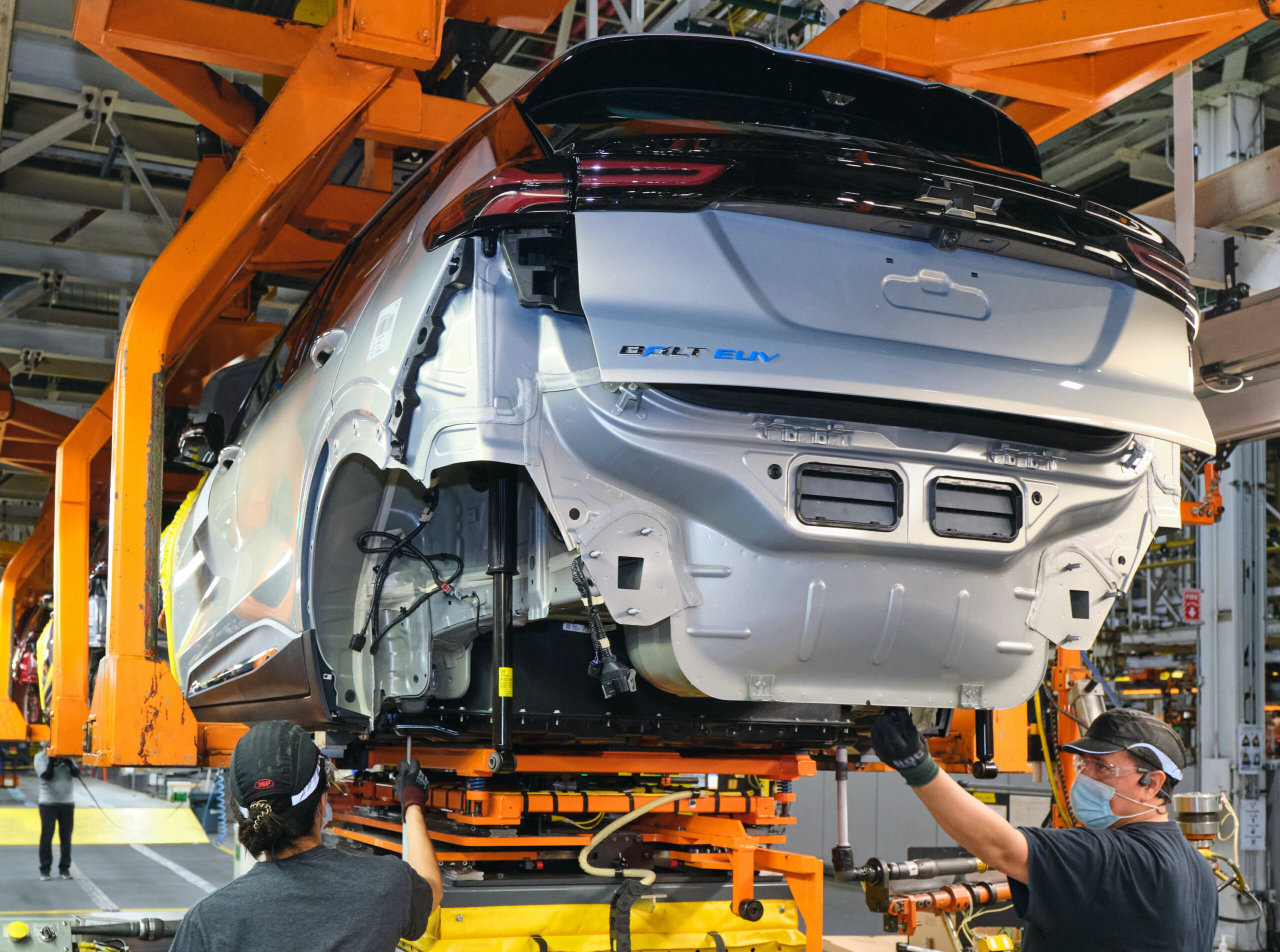

Researchers propose fire-preventing “anti-short layer” for EV batteriesResearchers propose fire-preventing “anti-short layer” for EV batteries
Researchers at Nanyang Technological University Singapore (NTU Singapore) have proposed a new way to prevent fires in lithium-ion batteries.
As reported by photovoltaics industry trade journal PV Magazine, the researchers have tested a so-called “anti-short layer,” which is an extra layer of material on the separator between the cathode and anode in lithium-ion cells.
This layer blocks the dendrites that are a main cause of EV battery fires, the researchers claim. Dendrites are caused by manufacturing flaws or damage to the cells, and can grow across the gap between a cathode and anode, causing short circuits.
2018 Chevrolet Bolt EV
Such problems have led to a recall of Chevrolet Bolt EV and EUV electric cars after several reported fires. General Motors has stopped production has said it will replace battery cells and modules in 2017-2019 Bolt EVs, but it’s possible newer models may get replacements as well.
The anti-short layer doesn’t stop dendrites from forming, but does prevent them from reaching from one electrode to the other, researchers claim. It was allegedly tested on more than 50 lithium-ion cells in different configurations, with no short circuits in charging even after batteries exceeded their expected lifecycles.
The layer is made from a material commonly used in battery manufacturing, and would increase battery production costs by around 5%, according to the researchers. NTU Singapore’s spinoff NTUitive will reportedly work to commercialize this technology, but it’s worth noting that promising research doesn’t automatically translate to a commercially-viable product.
Battery production at Mercedes-Benz’s plant in Hedelfingen, Germany
Outside of better quality controls and safer battery chemistries, this isn’t the only new technology being proposed to improve EV battery safety. In 2019, Bosch demonstrated the use of pyrotechnic fuses to quickly break electrical connections in an emergency.
Electric car fires are rare, much rarer than in gasoline cars, according to Tesla’s second annual Impact Report, released earlier this year. The National Transportation Safety Board (NTSB) has said that first responders need more training on EV fires, however.
View original article at: “https://www.greencarreports.com//news/1133714_researchers-propose-fire-preventing-anti-short-layer-for-ev-batteries”
Add a comment Cancel reply
Comments (0)
คลินิกปลูกผม นครสวรรค์
… [Trackback]
[…] Read More here on that Topic: autoseu.com/researchers-propose-fire-preventing-anti-short-layer-for-ev-batteriesresearchers-propose-fire-preventing-anti-short-layer-for-ev-batteries/ […]
super kaya88
… [Trackback]
[…] Read More here to that Topic: autoseu.com/researchers-propose-fire-preventing-anti-short-layer-for-ev-batteriesresearchers-propose-fire-preventing-anti-short-layer-for-ev-batteries/ […]
Read Full Article
… [Trackback]
[…] Read More on that Topic: autoseu.com/researchers-propose-fire-preventing-anti-short-layer-for-ev-batteriesresearchers-propose-fire-preventing-anti-short-layer-for-ev-batteries/ […]
https://www.postandcourier.com/sponsored/phenq-reviews-does-this-diet-pill-actually-work/article_1cdbfb1a-395f-11ee-9d97-33c51303c959.html
… [Trackback]
[…] Here you will find 84554 more Info to that Topic: autoseu.com/researchers-propose-fire-preventing-anti-short-layer-for-ev-batteriesresearchers-propose-fire-preventing-anti-short-layer-for-ev-batteries/ […]
Betkick
… [Trackback]
[…] Find More on on that Topic: autoseu.com/researchers-propose-fire-preventing-anti-short-layer-for-ev-batteriesresearchers-propose-fire-preventing-anti-short-layer-for-ev-batteries/ […]
Related posts


Electric SUVs: Top 6 Models for Family Trips











